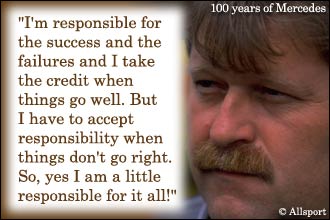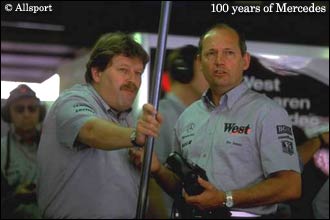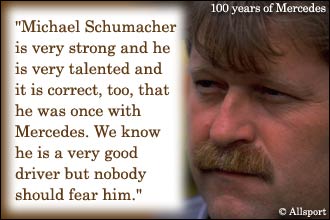|
||||||||
|
|
|||||||
|
are coming into Formula One and are following our example shows that people think highly of Mercedes. They look at the work we are doing with McLaren and it is easy for them to see how far we have come.
"I've been involved for 10 years. Since I started work with Mercedes, the company has been very successful as it has throughout its history. We've won 10 important international titles - we've won in DTM, in the CART championship in America, in 1997, and we have been champions in the GT Championship twice. "Of course, we've won in Formula One too, with McLaren. It is a good record. "I'm responsible for the success and the failures and I take the credit when things go well. But I have to accept responsibility when things don't go right, as at the start of last year, with McLaren. So, yes I am a little responsible for it all! "We had a difficult start in 2000, but in the end it was a fantastic season. We didn't win the championship, I know, but it was still a great competition with Ferrari and that kind of racing is what Formula One is all about. It is a pure sport and anything can happen. |


The Original Benz |
|
|
Like most Germans, Haug is proud of the achievements of his national team and their top driver, Michael Schumacher. Unfortunately, for him, Schumacher drives for Ferrari and is the Stuttgart-based company's chief rival when it comes to Formula One on the track. But Haug holds no special respect for him beyond recognising that he is one of the fastest and finest drivers in Formula One.
"Michael Schumacher won this year, but he is not in a special league," he explains. "Mika and David can match him and our driver line-up is as strong as ever. Michael is very strong and he is very talented and it is correct, too, that he was once with Mercedes. We know he is a very good driver but nobody should fear him. "We must remember that Ferrari have Rubens Barrichello and he is a very good driver too. He is the best partner Michael has had at Ferrari and he helped a lot last season." Looking ahead to the forthcoming 2001 season, Haug is uncertain about the likely effects of the tyre war between Bridgestone and Michelin, the French newcomers attempting to upset the status quo, of course. "Nobody knows the role Michelin will play in the championship battle. Of course, we want to win and we will try to prepare as best we can. McLaren and Ferrari were at the front last season and we will be on Bridgestones. |

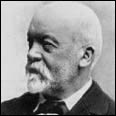
The Original Daimler |
|
|
a technical exercise and, for Mercedes - and subsequently for Haug - it was the beginning of a new age.
For the record, the drivers were Christian Lautenschlager, Louis Wagner and Otto Salzer and the triumph not only set new standards for everyone, it also gave the German people a fillip at a time when there was great tension with France and the event had heavy political overtones. Mercedes's chief rivals, of course, were Peugeot. Today, the chief rivals are Italians led by a Frenchman. And there is still great attention paid to technology, in particular, by attempting to ensure that the technical rule book is stable and unchanged and respected by all teams. It is a thorny issue, but one on which Haug has a view. "Very generally, we like to have rules within Formula One that applies to everyone," he said. "If you have something like traction control, which is very difficult to police, then the simple answer is to make it legal. "We believe that the only way forward is to allow it and then everything is out in the open. On things like that you have to ask: can you police it? Or can't you police it? The answer is to get everything in the open." |

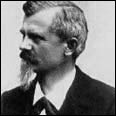
The Original Maybach |
|
| Timothy Collings | © 2007 autosport.com |
| Send comments to: comments@atlasf1.com | Terms & Conditions |




